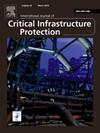智能可再生能源电网中人工智能增强的入侵检测:一种新的工业4.0网络威胁管理方法
IF 5.3
3区 工程技术
Q1 COMPUTER SCIENCE, INFORMATION SYSTEMS
International Journal of Critical Infrastructure Protection
Pub Date : 2025-05-19
DOI:10.1016/j.ijcip.2025.100769
引用次数: 0
摘要
工业4.0技术在可再生能源电网中的快速应用显著提高了效率和可扩展性。然而,这种整合也放大了网络安全风险,使传统的入侵检测系统(IDS)不足以应对不断发展的网络威胁。本研究提出了一种针对智能可再生能源电网量身定制的新型人工智能增强入侵检测系统(IDS),利用集成有监督和无监督学习技术的多阶段检测框架。提出的IDS结合了基于签名的随机森林检测和基于异常的自动编码器威胁识别,能够实时检测已知和零日网络威胁。使用真实网络攻击数据集进行的综合评估表明,与传统的IDS解决方案相比,该系统的检测准确率达到97.8%,大大减少了误报。这项工作不仅增强了智能电网的安全性和弹性,还为工业4.0应用提供了可扩展和适应性强的网络安全框架。这些发现有助于推进人工智能驱动的安全机制,确保关键能源基础设施在面对复杂的网络威胁时的可靠性。本文章由计算机程序翻译,如有差异,请以英文原文为准。
AI-enhanced intrusion detection in smart renewable energy grids: A novel industry 4.0 cyber threat management approach
The rapid adoption of Industry 4.0 technologies in renewable energy grids has significantly improved efficiency and scalability. However, this integration has also amplified cybersecurity risks, making conventional Intrusion Detection Systems (IDS) insufficient against evolving cyber threats. This study proposes a novel AI-enhanced Intrusion Detection System (IDS) tailored for smart renewable energy grids, leveraging a multi-stage detection framework that integrates both supervised and unsupervised learning techniques. The proposed IDS combines Random Forest for signature-based detection and Autoencoders for anomaly-based threat identification, enabling real-time detection of both known and zero-day cyber threats. A comprehensive evaluation using real-world cyberattack datasets demonstrates that the system achieves a detection accuracy of 97.8 %, significantly reducing false positives compared to traditional IDS solutions. This work not only enhances the security and resilience of smart grids but also offers a scalable and adaptable cybersecurity framework for Industry 4.0 applications. The findings contribute to the advancement of AI-driven security mechanisms, ensuring the reliability of critical energy infrastructure in the face of sophisticated cyber threats.
求助全文
通过发布文献求助,成功后即可免费获取论文全文。
去求助
来源期刊

International Journal of Critical Infrastructure Protection
COMPUTER SCIENCE, INFORMATION SYSTEMS-ENGINEERING, MULTIDISCIPLINARY
CiteScore
8.90
自引率
5.60%
发文量
46
审稿时长
>12 weeks
期刊介绍:
The International Journal of Critical Infrastructure Protection (IJCIP) was launched in 2008, with the primary aim of publishing scholarly papers of the highest quality in all areas of critical infrastructure protection. Of particular interest are articles that weave science, technology, law and policy to craft sophisticated yet practical solutions for securing assets in the various critical infrastructure sectors. These critical infrastructure sectors include: information technology, telecommunications, energy, banking and finance, transportation systems, chemicals, critical manufacturing, agriculture and food, defense industrial base, public health and health care, national monuments and icons, drinking water and water treatment systems, commercial facilities, dams, emergency services, nuclear reactors, materials and waste, postal and shipping, and government facilities. Protecting and ensuring the continuity of operation of critical infrastructure assets are vital to national security, public health and safety, economic vitality, and societal wellbeing.
The scope of the journal includes, but is not limited to:
1. Analysis of security challenges that are unique or common to the various infrastructure sectors.
2. Identification of core security principles and techniques that can be applied to critical infrastructure protection.
3. Elucidation of the dependencies and interdependencies existing between infrastructure sectors and techniques for mitigating the devastating effects of cascading failures.
4. Creation of sophisticated, yet practical, solutions, for critical infrastructure protection that involve mathematical, scientific and engineering techniques, economic and social science methods, and/or legal and public policy constructs.
 求助内容:
求助内容: 应助结果提醒方式:
应助结果提醒方式:


